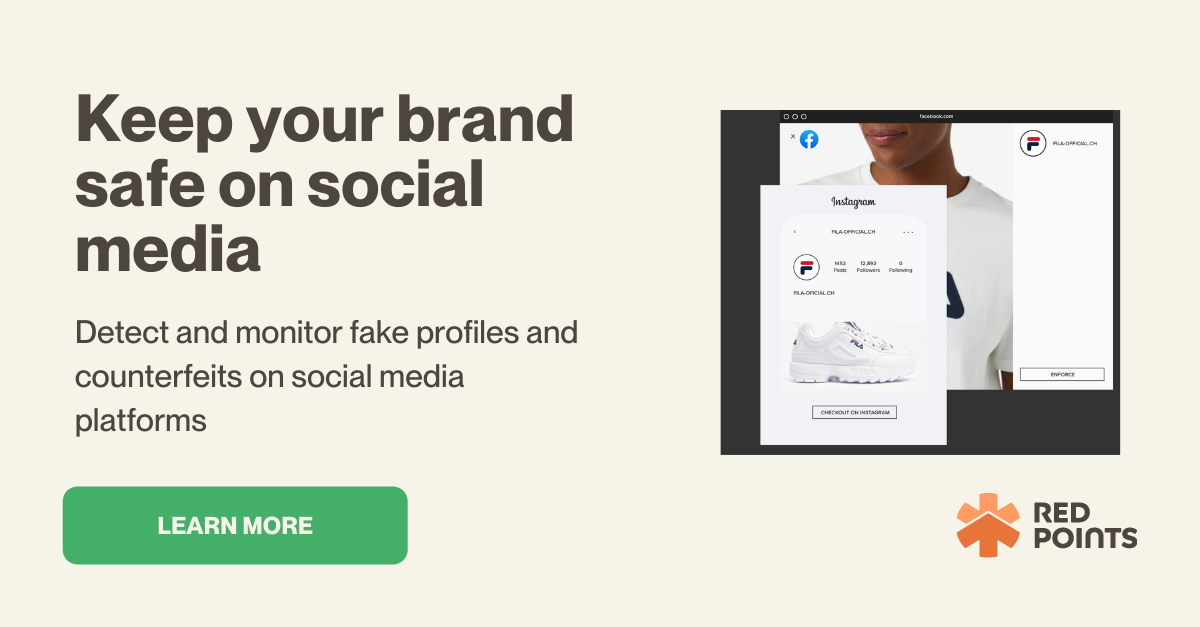ChatGPT is a Natural Language Processing (NLP) tool powered by AI technology. It allows users to converse with a human-like chatbot and receive answers to a whole host of questions. According to the most recent data, ChatGPT has over 100 million users around the world and generates 1 billion visits per month. It is a growing curiosity that is being used by all sorts of people to accomplish a wide variety of tasks.
While this new leap in technology is exciting for some it also presents some daunting challenges for business owners, content owners, and legal professionals. How are scammers going to improve their systems with AI technology like ChatGPT? How can you protect your content from being consumed and regurgitated by AI platforms? How do you safeguard your intellectual property (IP) from copyright infringers?
In this blog, we’ll be exploring how intellectual property in ChatGPT and copyright infringement are linked by touching on a number of topics, including:
- How are bad actors using AI like chatGPT to scale up their scam systems that rely heavily on the infringement of copyrighted content?
- What are five ways brands can protect their content from digital pirates?
- How can Red Points protect your content from copyright infringement?
How do bad actors harness AI, like ChatGPT, to amplify their scam systems through sophisticated copyright abuse?
ChatGPT is the end product of a machine-learning Natural Language Processing Model. It is capable of processing massive amounts of text data and understanding connections within this data. It is a program that is taught to predict sequences of words and produce content that can seem like it was created by a human.
Its responses are derived from a vast amount of text and data mining. This presents a number of pressing questions for content owners and creators. Firstly, should AI, like ChatGPT, be allowed to use copyrighted content belonging to third parties to
generate its answers? Secondly, who should be credited for the AI-generated content – humans or the AI itself?
As with any new and exciting technology, bad actors are using AI like ChatGPT to improve the way their scams function.
- Creating error-proof phishing websites
For example, scammers can now create more sophisticated and error-proof phishing websites and emails. Bad spelling and grammar are some of the easiest ways to tell that you have come across a scam. However, with AI like ChatGPT, bad actors can now create content that can bypass spam filters and mislead content regulators.
The real challenge for businesses, particularly those that rely on the value of their intellectual property, is how to combat bad actors who use AI systems to build scams that are heavily reliant on their copyrighted content.
- Copying large amounts of content
For example, with ChatGPT it becomes easier for some scammers to copy large amounts of content from your business and feed it straight into a generative AI program. In a matter of minutes, they may be able to produce content that is similar to what they have shown it. This content might be used to populate their scam website, form their fraudulent product listings, or make their copycat content seem more legitimate than it is. Clearly, this presents many difficulties for businesses that depend on the value of their copyrights. So, what can you do to protect your business from AI-supported scammers?

What are five ways brands can protect their content from digital pirates?
- Secure your work with copyright registration
A copyright is a type of intellectual property that protects original works. It is a legal protection that ensures that you will always have recourse to legally pursue bad actors who attempt to steal or misuse your content. It is the most robust and dependable protection you can have to defend against digital pirates.
To ensure that bad actors know your content is protected by copyrights you can display the copyright symbol ‘©’ on your work. While this will not deter the most fervent scammers it will demonstrate to some scammers that your content is not an easy target.
- Educate your consumers about your business’s standard communication protocols and be wary of AI-powered phishing schemes
When it comes to digital piracy, it is important to keep your user base as informed as possible. Your customers need to know how your business carries out its standard communication processes to ensure they know what may or may not be a scam. Additionally, they should also be aware that there could be bad actors trying to scam them by exploiting your brand’s trustworthy reputation.
Now, thanks to generative AI platforms such as ChatGPT, bad actors can speed up the process of replicating a website, making it it is easier than ever for scammers to steal copyrighted materials, such as product images from your site. Quickly reposting them on their fake websites and intentionally misleading your unwitting consumers.
With this new high advance and easily accessible technology, bad actors can carry out their scams with maximum ease and efficiency, allowing them to cast a wider net targetting more victims.
- Educate your workforce
You will also protect your business by educating your workforce about the recent surge in phishing or impersonation scams, as there’s a chance they could be targeted and not realize its fraud. Taking the time to teach your employees about proper protocols, official channels of communication, and of course how to identify an attempt at fraud, can make a massive difference in the success of your business.
You should make it a priority to train and inform your workforce about how AI tools like ChatGPT can make this sort of impersonation easier and more prevalent.
- Report copyright infringement
One of the simplest and most effective ways to protect your content is to report copyright infringement wherever you see it. For many businesses, this will mean reporting through the systems of various marketplaces. Most marketplaces and online websites will have basic copyright protection programs that allow you to report and defend your content.
Scammers operate regularly and widely across platforms like Amazon, Facebook, Pinterest, and eBay. In order to protect your content across the diverse array of marketplaces, platforms, and fake websites you have to be proactive and vigilant in the way you report.
- Implement a smart anti-piracy software solution
The last, and perhaps best, way to protect your content from digital pirates is to implement a smart software solution that is capable of detecting and taking down copyright infringement. For example, you can use Red Points’ own Anti Piracy software to detect and monitor scammers, review and validate specific infringements, and take down any infringing online material as soon as possible.
How can Red Points protect your content from copyright infringement?
Red Points’ Anti Piracy software is designed to protect your content from copyright infringement via a few simple but powerful steps.
- Detection and Monitoring
Our detecting and monitoring process is powered by automated bots that search the web looking to uncover digital pirates. We can rapidly detect pirated content wherever it appears online. Then we will log potential copyright infringements on our platform in a list for you to review.
- Review and Validate
Red Points’ platform gives clear visibility to all potential infringements, allowing you to see what platforms they are from and who is behind the infringing accounts. This information will allow you to review the list and validate the potential infringements that you want to pursue. Our platform allows you to automate the validation of certain infringements based on rules you set up to ensure that you can protect your content as efficiently as possible.
- Enforcement and Takedown
After validation, we will enforce your copyrights against bad actors on your behalf. Infringing content will be de-indexed and removed based on your validation rules. This will ensure that all infringing content is taken down and your intellectual property is protected.
- Data Reports and Dashboards
Following takedown, our platform also provides you with plenty of insightful data that will help you continue to protect your IP. We provide custom dashboards and reports tailored to your business’s needs. This data will help you learn more about your anti piracy coverage and allow you to improve your content protection efforts.
What’s Next
ChatGPT may well be the first in a long line of AI content-generation platforms that alter the way businesses and consumers operate within the market. At the forefront of any business owner’s mind will be the need to protect their content from being stolen, reused, and resold via AI platforms like ChatGPT. The prevalence of infringement that may stem from open access to such platforms is daunting for business owners, content owners, and legal professionals alike.
However, there are steps you can take to protect yourself and your business. Alongside securing your copyrights, educating your workforce, and reporting infringement, you can also engage a smart anti-piracy software solution like that provided by Red Points.
Our Anti Piracy software will help you track and remove illegal content, ensuring that you can recover revenue and retain the value of your copyrighted works. If you fail to act your content will become fodder for AI platforms like ChatGPT and you will cease to have control over how your IP is used online. But with Red Points, the future of your content is secure. Red Points enables you to have the power and resources you’ll need to pursue bad actors intent on infringing your copyright.






